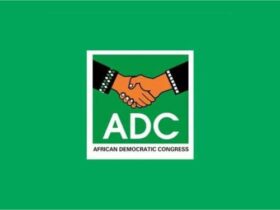The National Bureau of Statistics (NBS), says prices of beef, rice, beans, tomato, and other food items increased in October.
It said this in its Selected Food Prices Watch report for October 2023 released in Abuja on Friday.
The report said that the average price of 1kg of boneless beef increased by 30.80 per cent from N2,266.24 recorded in October 2022 to N2,948.03 in October 2023.
On a month-on-month basis, 1kg of boneless beef increased by 4.65 per cent in October from N2,816.91 in September 2023,’’ the report said.
It said that the average price of 1kg of local rice increased by 68.10 per cent on a year-on-year basis, from N487.47 in October 2022 to N819.42 in October 2023.
“On a month-on-month basis, 1kg of local rice increased by 8.24 per cent from the N757.06 recorded in September 2023.*
The report said that the average price of 1kg of brown beans increased by 39.90 per cent on a year-on-year basis from N564.69 in October 2022 to N790.01 in October 2023.
“On a month-on-month basis, the price increased by 10.19 per cent from the N716.97 recorded in September 2023. ”
The NBS said the average price of 1kg of Tomato increased by 48.73 per cent on a year-on-year basis from N454.46 recorded in October 2022 to N675.91 in October 2023.
“On a month-on-month basis, the price increased by 19.48 per cent from the N565.69 recorded in September 2023. ”
It said the average price of 1kg of white Gari white increased by 63.68 per cent on a year-on-year basis from N317.90 in October 2022 to N520.35 in October 2023.
“On a month-on-month basis, the price of this item increased by 11.21 per cent from N467.89 recorded in September 2023. ”
On state profile analysis, the report showed that the highest average price of 1kg of boneless beef was recorded in Anambra at N3,831.48, and the lowest price was recorded in Kogi at N2,362.50.
It said that Edo recorded the highest average price of 1kg of local rice at N1,044.17, while the lowest was reported in Zamfara at N660.79.
The NBS said that the highest average price of 1kg of brown beans was recorded in Imo at N1,095.84, while Taraba recorded the lowest price at N550.59.
It said the highest average price of 1kg of Tomato was recorded in Bayelsa at N1,344.13, while the lowest price was recorded in Kwara at N341.95.
The report said the highest average price of 1kg of white Gari was recorded in Delta at N759.29, while the lowest price was recorded in Kogi at N390.81.
Analysis by zone showed that the average price of 1kg of boneless beef was highest in the South-East at N3,582.88, followed by the South-South at N3,212.32.
” The lowest price was recorded in the North-East at N 2,656.27.”
The South-South and South-East recorded the highest average price of 1kg of local rice at N944.69 and N907.50, respectively, while the lowest price was in the North-East at N718.51.
The report said that the South-East recorded the highest average price of 1kg of brown beans at N1,023.34, followed by the South-South at N870.09, while the North-West recorded the lowest price at N615.07.
It said the South-South recorded the highest average price of 1kg of Tomato at N1,199.77, followed by the South-East at N908.64.
“The North-East recorded the lowest price of 1kg of Tomato at N382.92, ” the NBS said. (NAN)
Black Friday: Nigerian online shoppers believe domestic version “A scam”
Monitoring the Black Friday conversations on social media, most Nigerian online shoppers revealed lack of trust, as many believed that e-commerce companies were simply boosting their sales without really offering great discounts.
A tech blogger, Wale Ladipupo, said the concerns of customers were reasonable since the major platforms had given online shoppers several reasons to be suspicious of their Black Friday deals.
He also mentioned cases where Black Friday prices of products seen online were significantly higher than the price of products in stores.
However, in spite of these concerns, major Nigerian e-commerce companies have continued to announce bigger sales each year and they’ve made Black Friday sales a month-long event.
“We’ve had situations where prices of products are jacked up few days before Black Friday, only for the added amount to be removed and they say that was a great Black Friday deal.
“Consumers are not stupid, we can see what they are doing,” he said.
A twitter handler, @Punmba tweeted that she believed the domestic version of Black Friday was a scam.
“Several eCommerce companies use some ploys to cheat users when sales happen.
“One interesting ploy allegedly being used is that these platforms inflate prices just before Black Friday and then reduce them when sales are on.
“This tactic gives the illusion that prices were actually slashed to make items cheaper for customers,” @Punmba tweeted.
Femi Vaughan on twitter also said that one factor that had brought Nigerian Black Friday down was the economy.
“Due to the harsh realities of the Nigerian economy, most users would rather save than spend heavily during Nigerian Black Friday,” he said.
The News Agency of Nigeria (NAN) reports that the Nigerian version of Black Friday sales started online in 2013 by Jumia and Konga, with the aim of creating similar excitement of rush retail sales as made popular in the U.S., UK and other countries. (NAN)










Leave a Reply